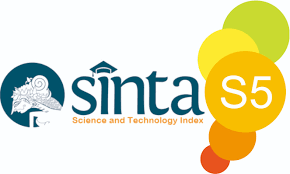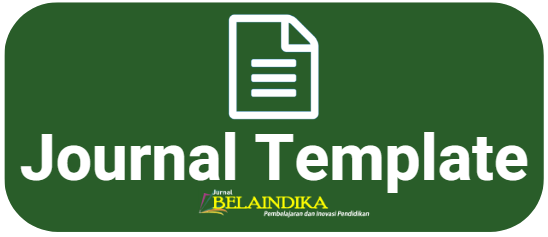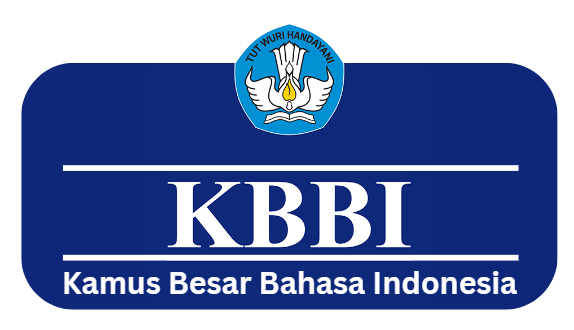Penguatan Nilai-Nilai Pancasila di Sekolah Dasar
Abstract
Penelitian ini didasarkan pada pentingnya penguatan nilai Pancasila pada peserta didik di era digital saat ini. Tujuan penelitian ini adalah untuk mengetahui: 1) Bagaimana penguatan nilai-nilai Pancasila di SD. 2) Apa saja kendala penguatan nilai-nilai Pancasila di SD. Penelitian ini menggunakan penelitian kualitatif. Sumber data diperoleh dari kepala sekolah, guru, siswa, dan kegiatan. Teknik pengumpulan data yang digunakan untuk memperoleh dan menyusun data penelitian ini adalah dengan wawancara semi terstruktur, observasi partisipasi aktif dan analisis dokumen. Berdasarkan hasil penelitian menunjukkan bahwa: 1) Pelaksanaan penguatan nilai-nilai Pancasila di SD termasuk dalam jalur sosialisasi Pancasila melalui pengembangan sosial budaya (psyco-pedagogial development) yang dilakukan melalui sholat berjamaah, pemilihan ketua kelas, diskusi kelompok kecil, pramuka, pembelajaran di kelas, jumat bersih, upacara bendera dan piket kelas. Pelaksanan penguatan nilai-nilai Pancasila di sekolah dasar menemui kendala yaitu sikap anak yang sulit dinasehati dan memiliki kebiasaan di luar sekolah yang kurang baik. Perubahan yang terjadi dari yang sebelumnya anti sosial menjadi memiliki sikap peduli sosial yang akhirnya dapat memberikan hasil yang baik untuk menguatkan nilai-nilai Pancasila.
References
Ali, S. M. (2015). School Landscape Environments in Assisting the Learning Process and in Appreciating the Natural Environment. Social and Behavioral Science, (202), 189-198.
Aljawiy, A. Y. & Muklason, A. (2011). Jejaring Sosial dan Dampak Bagi Penggunanya. (1)1, 1-7. Diperoleh pada 3 Mei 2018, dari http://www.journal.unipdu.ac.id/ index.php/teknologi/search/search.
Al-Rahmi, W. M. (2016). A Model of Using Social Media for Collaborative Learning to Enhance Learners’ Performance on Learning. Journal of King Saud University-Computer andInformations Science, (29)526–535.
Alvarez, R. M., & Hall, T. E. (2004). Point, click, and cote: The future of internet voting. Brookings Institution Press
Amedie, Jacob. (2015). The Impact of Socal Media on Society. Advanced Writing: Pop Culture Intersections. Paper 2. Diperoleh pada 3 Mei 2018, dari http://scholarcommons.scu.edu/cgi/viewcontent.cgi?article=1002&context=engl_176.
Betsch, C., & Iannello, P. (2010). Measuring individual differences in intuitive and deliberate decision making styles: A comparison of different measures. In A. Glöckner, & C. Witteman (Eds.), Tracing intuition: Recent methods in measuring intuitive and deliberate processes in decision making. London, UK: Psychology Press.
Course, S. (2014). ELT students’ use of teacher questions in peer teaching. Social and Behavioral Science, (158) 331-336.
Durrani, N. (2018). Dynamics of gender justice, conflict and social cohesion: Analysing educational reforms in Pakistan. International Journal of Educational Development, (61) 27-39.
Ertmer, P., Newby, J., Liu, W., Tomory, A., Yu, J.H., Lee, Y.M., 2011. Students’ confidence and perceived value for participating in cross-cultural wiki-based collaborations. Education Technology Res. Development 59 (2), 213–228.
Goh, D. P.S., van der Veer, P. (2016). Introduction: the sacred and the urban in Asia. International Sociology,(31)4, 367–374.
Gregory, A., Ian Walker, I., Mclaughlin, K. & Peets, A.D. (2011). Both preparing to teach and teaching positively impact learning outcomes for peer teachers. Med Teach 33
Junco, R., Heiberger, G., Loken, E., 2011. The effect of Twitter on college student engagement and grades. J. Comput. Assist. Learn. 27 (2), 119–132.
Kaelan. 2014. Pendidikan Pancasila. Yogyakarta : Paradigma
Kozhanova, M. B., Svechnikova, N. V., Akhmetzyanova, G. N., Kondrashova, E. N., Maksimova, N. L., Zakharova, Z. A. (2017). Psycho-Pedagogical Conditions of Professional Culture Development of a University Professor. International Electronic Journal of Mathematics Education, (12)1, 15-23.
Kus, Z. (2015). Participation Status of Primary School Students. Social and Behavioral Science, (177) 190-196.
Larusson, J., Alterman, R., 2009. Wikis to support the collaborative part of collaborative learning. Int. J. Comput.-Support. Collab. Learn. 4, 76.
Luke, M. A. (2009). Oh the humanity! Humanity-esteem and its social importance. Journal of Research in Personality, (43)4, 586-601.
Mardikanto, T. (2010). Komunikasi Pembangunan (Acuan Bagi Akademisi, Praktisi dan Peminat Komunikasi Pembangunan). Surakarta: UNS Press.
Mares, M. -L., Sivakumar, G., & Stephenson, L. (2015). From meta to micro: Examining the effectiveness of educational TV. American Behavioral Scientist advance online publicaton.
Markopoulus, E. (2015). The company democracy model for the development of intellectual human capitalism for shared value. Procedia MAnufacturing, (3) 603-610.
Mirzianov, O. (2016). Development and Validation of Learning Process Assessment Model. Procedia Computer Science, (104) 258-265.
Miles, M.B. and A. M. Huberman. (2005). Qualitative Data Analysis (terjemahan). Jakarta : UI Press.
Necula, M. I. (2014). Religious Values Left Outside the Scope of Penal Protection. Social and Behavioral Sciences, (149) 634-638.
Novak, E., Razzouk, R., Johnson, E., 2012. The educational use of social annotation tools in higher education: a literature review. Internet High Education 15 (1), 39–49.
Pachur, T. (2015). Domain-specific preferences for intuition and deliberation in decision making. Social and Behavioral Science, (4) 303-311.
Popi, P., Sudaryono, A.D., Heddy, S.A.P., (2012). Ritual and space structure: pilgrimage and space use in historical urban kampong context of Luar Batang (Jakarta, Indonesia). Social and Behavioral Science. 36, 350–360.
Rakhmat, J. (2000). Rekayasa Sosial: Reformasi, Revolusi, atau Manusia Besar?. Bandung: Remaja Rosda Karya.
Setiawan, W. (2017). Era Digital dan Tantangannya. Seminar Nasional Pendidikan 2017. Sukabumi.
Sitorus, J. H. E. (2016). Pancasila-based Social Responsibility Accounting. Social and Behavioral Science, (219) 700-709.
Vassil, K., & Weber, T. (2011). A bottleneck model of e-voting: Why technology fails to boost turnout. New Media & Society, 13(8), 1336–1354.
Wahab, A. A. & Sapriya. (2011). Teori dan Landasan Pendidikan Kewarganegaraan. Bandung : Alfabeta
Wahyono, I. (2017). Implementasi Nilai-nilai Pancasila dalam Kegiatan Pembelajaran. Tesis. Universitas Negeri Yogyakarta.
Yudhanegara, F. (2015). Pancasila Sebagai Filter Pengaruh Globalisasi Terhadap Nilai-Nilai Nasionalisme. Jurnal Ilmu Administrasi Negara, (31) 2, 165-180.
Zanfiana, F. (2013). Hubungan Antara Kedisiplinan Melaksanakan Sholat Wajib Dengan Prokrastinasi Akademik Pada Mahasiswa di Fakultas Farmasi Universitas Ahmad Dahlan. Empathy Jurnal Fakultas Psikologi, (2)1, 1-17.
Zhou, M., Zhu, H.J. (2011). Transformation of traditional culture and economic development in Tibet. Journal of the central institute of socialis,(173) 72-75.


_page-0001_-_Copy11.jpg)






